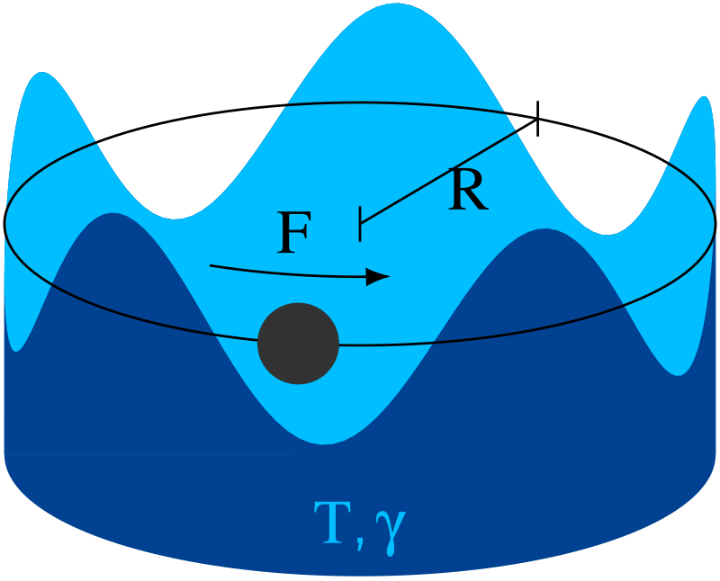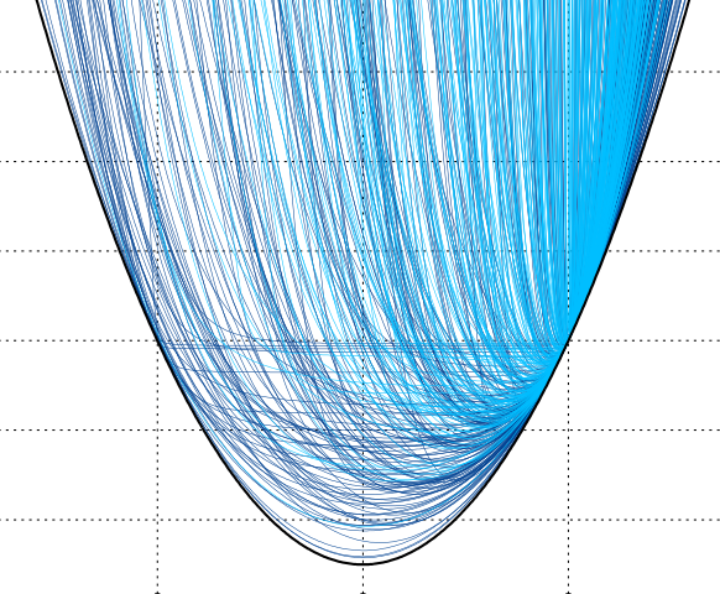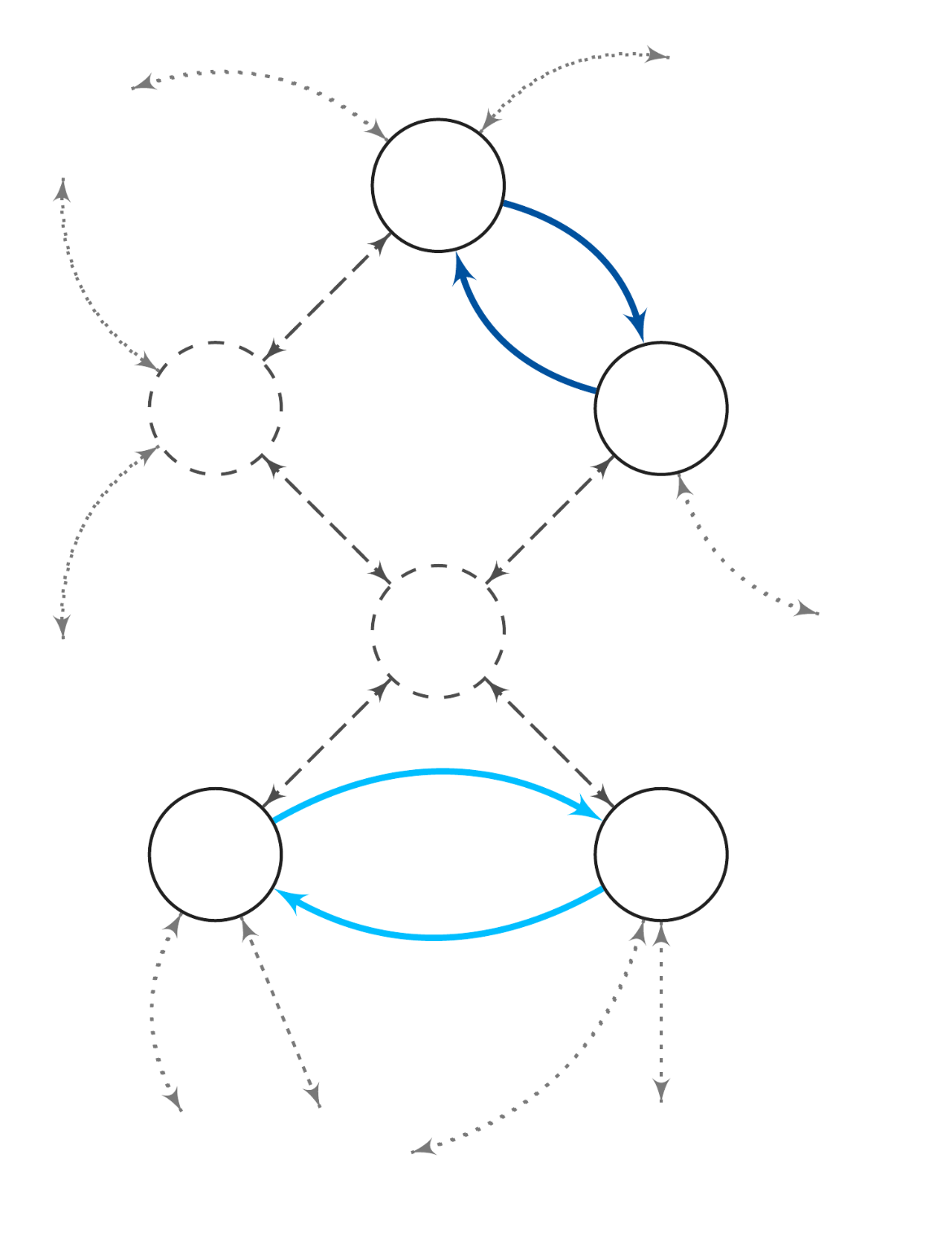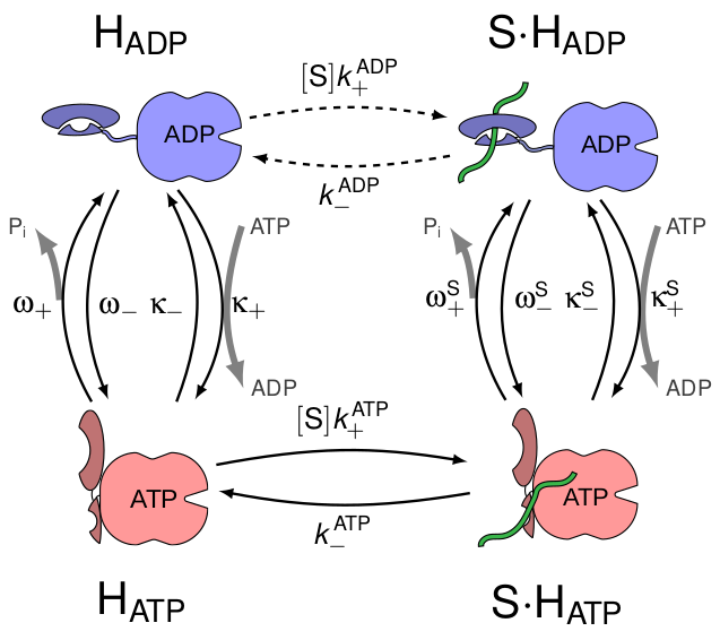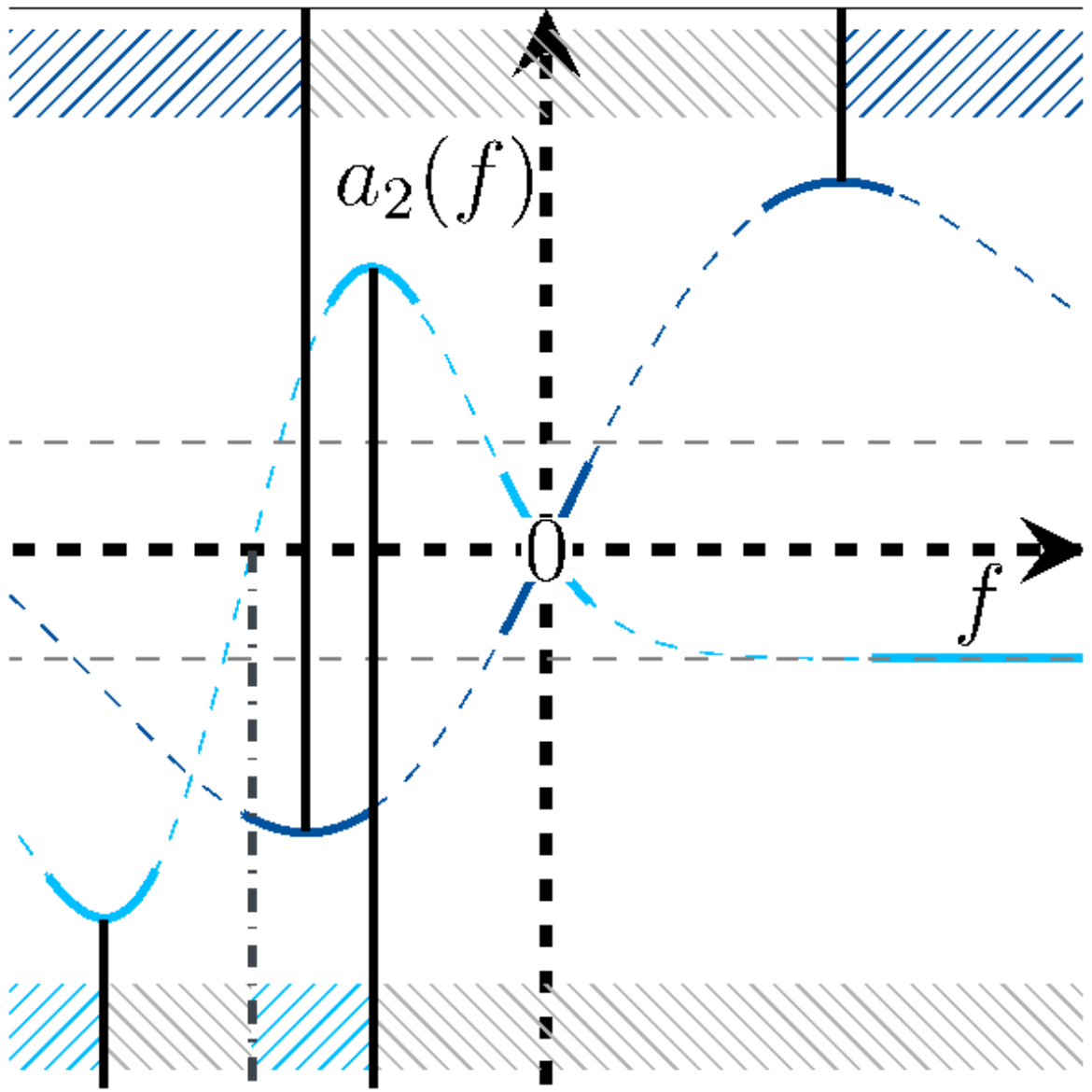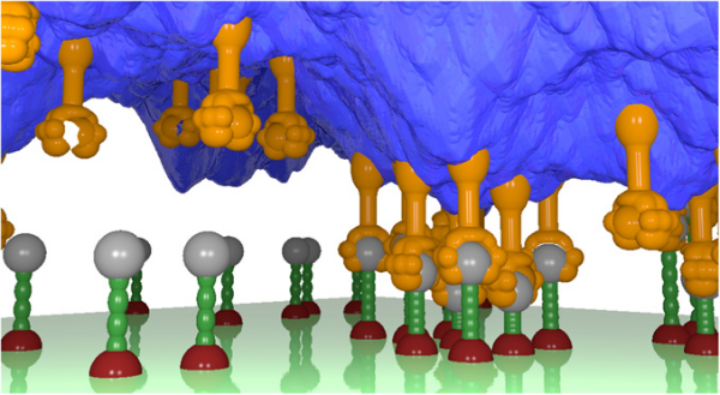Stochastic Thermodynamics
Stochastic thermodynamics provides a systematic framework for extending the notions of classical thermodynamics such as work, heat and entropy production to the level of individual trajectories of well-defined non-equilibrium ensembles. Paradigmatic systems are single colloidal particles, enzymes and molecular motors in single molecule assays.
Thermodynamic uncertainty relation
For systems operating at the mesoscale, fluctuations of thermodynamic quantities can be of the same magnitude as the mean value but are often undesired. The thermodynamic uncertainty relation states that small fluctuations come at the cost of high disspipation, which implies that the effieciency of such mesoscopic devices is decreased if reliable operation is required.
Thermodynamic inference
One of the guiding principles for stochastic thermodynamics is bringing the fundamental principles of thermodynamics together with the complex phenomena of living systems. Since not everything is operationally accessible in such a sophisticated structure, we study how thermodynamic principles aid us in inferring hidden degrees of freedom.
Precision in biological systems
On a nanoscale all processes preserving live are governed by biochemical processes, for instance motion is created by molecular motors consuming ATP, sensing is realized by binding mechanisms and enzymes are controlling and chaperoning the folding of new proteins. The fact that those processes are subject to thermal noise and thus limited accuracy raises the question of precision.
Dynamics and Thermodynamics
Unlike classical thermodynamics, modern stochastic thermodynamics applies to inherently dynamical phenomena such as relaxation, driving and transport processes. Mathematically, these physical features are encoded in the equations of motion within particular models. Thus, studying these specific problems provides not only technical insight, but also the potential for future application.
Dynamics of Membrane Adhesion
The interaction of flexible membranes with an underlying scaffold plays a crucial role in the understanding of the cell recognition process and related biological processes.
Archive
In contrast to passive Brownian motion its active counterpart has some sort of mechanism influencing the direction or speed of the particles. Examples of such particles range from synthetic janus swimmers which have a chemical propulsion in a certain direction to Bacteria which control their motion by transforming their body. With both passive kicks and active motion acting on the particles intriguing effects can be observed.
Large deviation theory proves to be an invaluable tool for studying mathematical features beyond methods on the level of the central limit theorem. Applied to stochastic thermodynamics, these methods allow new insights into topics like fluctuation theorems or thermodynamic uncertainty relations.
The statistics of colloids change significantly when they enter a condensed phase. In a dense package one can observe numerous effects from anormal diffusion to phase transistions. We study the response to an external flow.



